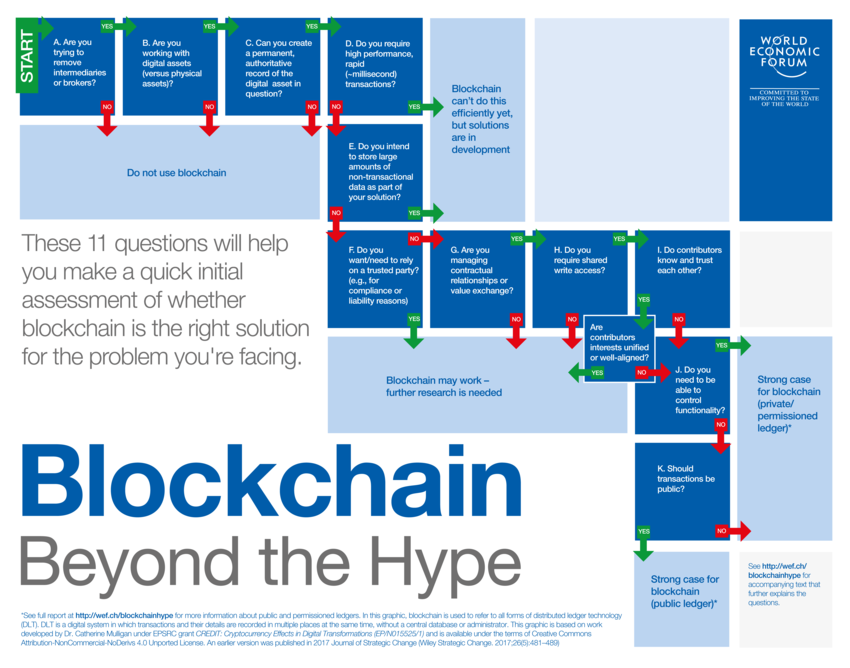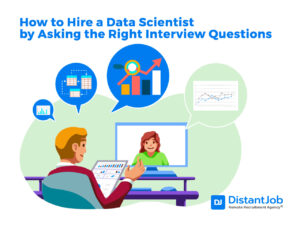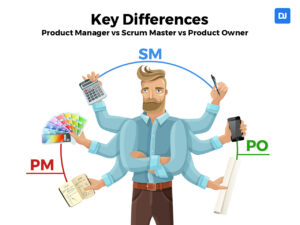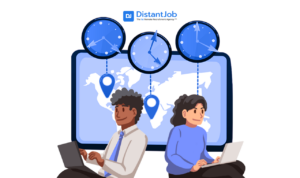Mastering blockchain interview questions has become crucial for today’s hiring managers and technical recruiters. As the technology expands beyond cryptocurrencies into every industry sector, the ability to effectively evaluate blockchain talent through strategic questioning can make the difference between a successful hire and a costly mistake.
As specialists in tech recruitment for North American companies, we’ve witnessed firsthand how the relative newness of blockchain technology – having emerged in 2009 – has created a significant gap between demand and available expertise. The complexity of blockchain development requires a unique combination of skills that can be difficult to evaluate effectively.
This comprehensive guide shares our most impactful interview questions, expert answers, and strategic hiring insights drawn from years of blockchain recruitment. Whether you’re building a Web3 team or integrating blockchain into enterprise systems, these proven screening techniques will help you identify truly qualified candidates.
Here’s a list of basic but key blockchain interview questions that will help you know how much a candidate knows regarding this technology. Make sure to look out for answers that don’t seem too memorized.
System Architecture and Design
Q1: Design a Sharding Solution for High-throughput Applications
Context: You need to implement sharding for a blockchain application that requires processing 100,000+ transactions per second.
Expected Answer: A comprehensive answer should include:
- Implementation of beacon chain for coordination
- Cross-shard communication protocols
- Data availability solutions
- Consideration of these trade-offs:
- State management across shards
- Cross-shard transaction atomicity
- Security implications of reduced validator sets per shard
Example implementation approach:
solidityCopy// Simplified shard coordinator contract
contract ShardCoordinator {
mapping(uint256 => address) public shardValidators;
mapping(uint256 => bytes32) public shardStateRoots;
function submitShardBlock(
uint256 shardId,
bytes32 stateRoot,
bytes[] calldata crossShardMessages
) external {
require(isValidator(msg.sender, shardId), "Not authorized");
processCrossShardMessages(crossShardMessages);
shardStateRoots[shardId] = stateRoot;
}
}Q2: Cross-Chain Bridge Architecture
Context: Design a secure bridge between two different blockchain networks.
Expected Answer: Key components to discuss:
- Lock-and-Mint mechanism
- Oracle implementation for verification
- Multi-signature validation
- Replay attack prevention
- Emergency shutdown mechanisms
Example security implementation:
solidityCopycontract Bridge {
// Minimum number of validator signatures required
uint256 public constant MIN_SIGNATURES = 7;
// Prevent replay attacks
mapping(bytes32 => bool) public processedTransactions;
function processCrossChainTransfer(
bytes32 txHash,
uint256 amount,
address recipient,
bytes[] memory signatures
) external {
require(!processedTransactions[txHash], "Transaction already processed");
require(validateSignatures(txHash, signatures), "Invalid signatures");
processedTransactions[txHash] = true;
// Process transfer
}
}Smart Contract Security
Q3: Advanced Reentrancy Protection Patterns
Context: Implement comprehensive reentrancy protection beyond simple nonReentrant modifiers.
Expected Answer: Should cover:
- Check-Effects-Interactions pattern
- Pull over Push payments
- Reentrancy Guard implementation
- State machine patterns
Example implementation:
solidityCopycontract SecureContract {
enum State { IDLE, PROCESSING }
State private _state;
mapping(address => uint256) private _balances;
modifier guardState {
require(_state == State.IDLE, "Invalid state");
_state = State.PROCESSING;
_;
_state = State.IDLE;
}
function withdraw() external guardState {
uint256 amount = _balances[msg.sender];
require(amount > 0, "No balance");
_balances[msg.sender] = 0; // Update state before interaction
(bool success, ) = msg.sender.call{value: amount}("");
require(success, "Transfer failed");
}Layer 2 Scaling Solutions
Q4: Optimistic Rollup Implementation
Context: Design an optimistic rollup solution focusing on fraud proof mechanics.
Expected Answer: Key components:
- Transaction batching mechanism
- State commitment scheme
- Challenge period implementation
- Fraud proof verification system
Example state commitment:
solidityCopycontract OptimisticRollup {
struct StateUpdate {
bytes32 previousState;
bytes32 newState;
bytes32 transactionRoot;
uint256 timestamp;
}
mapping(uint256 => StateUpdate) public stateUpdates;
uint256 public challengePeriod = 7 days;
function submitStateUpdate(
bytes32 newState,
bytes32 transactionRoot
) external onlyOperator {
// Implementation
}
function challengeStateUpdate(
uint256 updateId,
bytes calldata fraudProof
) external {
// Fraud proof verification
}
}
Zero-Knowledge Implementations
Q5: ZK-Rollup Circuit Design
Context: Implement a zero-knowledge circuit for private token transfers.
Expected Answer: Should discuss:
- Circuit constraints design
- Efficient proof generation
- On-chain verification
- Privacy considerations
Key implementation concepts:
solidityCopycontract ZKRollup {
struct CommitmentPair {
bytes32 inputCommitment;
bytes32 outputCommitment;
}
mapping(bytes32 => bool) public nullifiers;
mapping(bytes32 => bool) public commitments;
function verifyAndExecuteTransfer(
bytes calldata proof,
CommitmentPair calldata commitments
) external {
require(
verifyProof(proof, commitments),
"Invalid proof"
);
// Process transfer
}
}
Consensus Mechanism Implementation
Q6: Custom Consensus Design
Context: Design a consensus mechanism for a private blockchain with specific throughput requirements.
Expected Answer: Must cover:
- Leader selection mechanism
- Block proposal process
- Finality conditions
- Fork choice rules
- Performance optimization strategies
Example implementation structure:
solidityCopycontract CustomConsensus {
struct Validator {
uint256 stake;
uint256 lastProposalBlock;
bool isActive;
}
mapping(address => Validator) public validators;
function proposeBlock(
bytes32 blockHash,
bytes[] calldata signatures
) external {
require(isActiveValidator(msg.sender), "Not authorized");
require(
validateSignatures(blockHash, signatures),
"Invalid signatures"
);
// Process block proposal
}
}
Performance Optimization
Q7: Gas Optimization Techniques
Context: Optimize a complex smart contract system for minimal gas consumption.
Expected Answer: Should discuss:
- Storage patterns optimization
- Batch processing implementation
- Assembly usage for critical paths
- Calldata vs Memory trade-offs
Example optimized contract:
solidityCopycontract GasOptimized {
// Pack variables to use single storage slot
struct UserInfo {
uint128 balance;
uint64 lastUpdate;
uint64 flags;
}
mapping(address => UserInfo) private _userInfo;
// Use assembly for efficient array operations
function batchProcess(address[] calldata users) external {
assembly {
// Direct calldata access
let length := calldataload(0x24)
let offset := 0x44
for { let i := 0 } lt(i, length) { i := add(i, 1) } {
let user := calldataload(add(offset, mul(i, 0x20)))
// Process user
}
}
}
}
System Integration and Deployment
Q8: Large-Scale DApp Architecture
Context: Design a system architecture for a DApp handling millions of daily transactions.
Expected Answer: Must address:
- Indexing strategy
- State management
- Caching layers
- API design
- Monitoring systems
Example architecture components:
javascriptCopy// Event indexing service
class BlockchainIndexer {
async processBlock(blockNumber: number) {
const events = await this.getBlockEvents(blockNumber);
await this.processEvents(events);
await this.updateState();
}
async processEvents(events: Event[]) {
// Batch process events
// Update caching layer
// Trigger webhooks
}
}
How to Hire the Right Blockchain Developer (5 Steps)
- Identify the need for blockchain technology in your company
- Create a canvas of your ideal candidate
- Evaluate your company’s hiring resources
- Define your evaluation methods
- Start with the hiring process
1. Identify the Need for Blockchain Technology in Your Company
Before looking for a blockchain developer, make sure you understand how blockchain technology can impact your business and if you need it.
In a Gartner survey of more than 3,000 CIOs, only 11% indicated that they have deployed or will deployed blockchain, mainly because most of the projects fail to get beyond the initial experimentation phase. Why? The first mistake most businesses make is that they misunderstand blockchain technology.
Understanding the hype that blockchain has is easy. Among its advantages, you’ll read how it ensures supply chain traceability, provides information security, protects intellectual property, improves stock, and many other things. And while the benefits make your eyes shine bright, take a moment to analyze the essence of blockchain.
In the first place, the ledger technology includes a tamper-proof and consensus algorithm. If the administrators need to change the written data, blockchain is not the right choice as it doesn’t allow any modification once the data centers are in the chain.
Here’s a list of businesses that need blockchain technology (and examples of companies already using it):
- Supply chain businesses: Walmart, Unilever, Ford
- Healthcare: FDA, Pfizer, Change
- Government: Seoul, Lantmateriet, Government of Dubai
- Banking: HSBC, VISA, and BBVA
- Real estate: Brookfield, Westfield, Coldwell banker
- Energy: Shell, Siemens, Tennet
If you perhaps can relate to one of those businesses or industries but are still unsure if blockchain is the right technology for your company, the World Economic Forum created 11 questions that help business owners understand if they need it and, if it’s the case, what type of blockchain to use (whether if a private or a public ledger):
2. Create a Candidate Persona
A candidate persona is the semi-fictional representation of your ideal job candidate. Creating a candidate persona will help you to understand the importance of hiring the right person for the role more in-depth. And of course, it will help you easily define the characteristics, skills, and traits this blockchain developer should have.
These are 5 basic aspects that can help you start tracing your candidate persona for the blockchain developer role:
- Expectations: What do you expect from this candidate? What challenges are you looking for them to solve? Here you should define their role and outline the main responsibilities they will have in the company.
- Skills: What skills should a blockchain developer have? Consider those that are indispensable for the role and those that are not a must-have but you would like them to have.
- Personality and company culture: What personality traits do you highly value? Define the soft skills that will make them a great candidates. Remember that you’ll constantly be dealing with this person, so make sure to prioritize this aspect as well.
- Type of employment contract: What type of employee do you need for your company? (A full-time blockchain developer? Part-time? Remote? Onsite?)
- Salary: A blockchain developer’s salary is not cheap. Analyze your budget and consider your possibilities and how much you can pay a developer for their services.
Every blockchain developer needs to understand core blockchain concepts and have experience operating them. These are the essential skills of a blockchain developer to keep in mind when creating your candidate persona:
- Cryptography: This is one of the core skills in which your candidate needs to have in-depth knowledge. The study and implementation of cryptography determine how a blockchain performs.
- Smart contract: This is one of the most popular terms in the blockchain industry, and almost every blockchain solution uses it for its benefits. In simple terms, it allows two parts to exchange goods and services without an intermediary.
- Data structures: Every blockchain developer needs to know and understand how to work with data structures daily as they use them to build networks.
- Web development: This might depend on your needs, but a blockchain developer will be creating web applications to integrate with blockchain technology in most cases.
- Blockchain architecture: For blockchain developers, it’s key to understand the importance of a ledger in blockchain, the definition of consensus, and how smart contracts function. The three forms of blockchain architecture include private, consortium, and public architecture.
- Interoperability: This skill consists of viewing and collecting information across many blockchain systems.
3. Evaluate Your Business Hiring Practices
You’ve probably heard complaints (or even complained yourself) about the difficulties of hiring in the IT industry. “There’s talent shortage,” or “It’s too expensive,” are two of the thousand reasons why companies and HR teams struggle to find and hire the right candidate.
And although both reasons are accurate, sometimes the problem is within your hiring process. Of course, the industry is one of the most competitive ones, especially when it comes to these types of roles that are relatively new. However, if you don’t take time to evaluate your business’s hiring practices, it will be even more difficult to know the best ways to find, attract, and hire blockchain developers.
One of the most common mistakes companies make when hiring employees in different areas, not only in IT, is that they don’t monitor whether their hiring practices lead them to hire good employees. Whether they have an HR team to take care of the process or simply write a job ad and post it on different platforms, businesses forget to track the cost per hire and time to hire.
If they did this with every hire, they could have real data on their methods’ effectiveness. So, if you are one of those businesses that are not looking closely at your business practices, it’s time to start.
Additionally, evaluating your business hiring practices also involves figuring out the best tools, methods, and budget for hiring a blockchain developer. These three categories will depend on what type of contract you will have with your new developer.
For example, if you want to hire a remote blockchain developer, you’ll have to research more about the best tools to conduct the interviews and, overall, the hiring process. Also, you’ll need to evaluate what methods will help you attract a remote blockchain developer faster, either looking for passive candidates through social media platforms, looking in job boards, referrals, etc., and lastly, the budget. If it’s a remote blockchain developer, you could look for candidates in countries with lower living costs. This could help you get qualified professionals without risking your budget.
4. Define Your Evaluation Methods
The next step to hire a blockchain dev successfully is to define your evaluation methods. For this, you need to be very clear regarding what type of blockchain developer you’re looking for: freelancers, full-time remote developers, or onsite developers.
Knowing what type of employment contract you want will help you define what is the best evaluation method for that employee.
Freelance Blockchain Developers
Freelancers are one of the easy alternatives companies have whenever they need specialized skills for a short-term project. If you need a blockchain developer for a short amount of time to help your team with something specific or to develop a single project, then hiring a freelancer is a good option.
Things to consider:
- Don’t work with freelancers if your only motivation is to save money: People tend to relate freelancers with cheap hourly rates. In some cases, it’s true. However, if you want a quality job, then don’t expect to get it by paying miserable hourly rates. You get what you pay for.
- Freelancers don’t owe you commitment. Working with freelancers is working with someone external to our company. They don’t understand your team’s culture or motivations, and quite frankly, they don’t have an interest in doing so. They focus on delivering what you’re asking them to do, not more.
Evaluation tips:
On many freelancing platforms, you can check out their rating and reviews from previous clients. However, before hiring them, make sure to test their skills. Here are some tips:
- Look at their previous work. This will help you see how much experience they have working with blockchain and their results for other companies.
- Ask for references from past clients that have worked with them as well.
- Look for possible red flags. If a freelancer takes a lot of time to answer your emails, that could indicate they won’t deliver work on time.
Full-time Remote Blockchain Developers
Full-time remote blockchain developers have the same benefits as an onsite developer, with the only difference that instead of working in the same location as you, they work remotely. Hiring a full-time remote developer increases your possibilities of hiring a blockchain professional as you don’t limit yourself to one location only.
Things to consider:
- You’ll likely need to rethink your communication processes: Working with remote employees often means you need to be intentional when it comes to communication. As you don’t see them physically, make sure nothing is lost in translation and misunderstandings are avoided by being clear regarding projects and tasks.
- It’s not as easy as it seems. One of the benefits of remote hiring is that you have a wider talent pool. However, this doesn’t mean it will be easy to find the right candidate right away. You still need to work on your recruitment methods and hiring processes.
Evaluation tips:
As a remote recruitment agency, we always ensure that we help our clients hire the best technical talent around the world. How do we evaluate tech candidates? There’s no right or wrong method here, and it depends on the role, the company, and other aspects. Here are some tips that can help you:
- Always ask for references. This will help you have a better idea of a candidate’s experience and also of how well they work in a team, among other things.
- Conduct different types of interviews: The worst mistake is to think that one interview is enough to determine if a candidate is worth it or not. You already have your candidate persona, so based on those skills and requirements, define the interviews you need to conduct to help you have a clear picture of a candidate. Evaluate personality traits, how they interact with other team members, their technical abilities, etc.
- Look at how comfortable a candidate is in a remote environment. Not everyone has the right communication skills or likes using different tools and applications.
Onsite Blockchain Developer
Hiring onsite developers was the way to go a couple of years ago. There was little to no technology that could support remote software development teams, and as a consequence, it was better to have all the teams in the same place. Nowadays, although remote work is becoming the norm, some companies still prefer to encourage onsite work. If this is your case and you want to hire an onsite blockchain developer, here are some things you need to consider:
- Hiring onsite means you have a limited number of possible candidates. Keep in mind that blockchain is a very specialized area within software development that narrows the pool of talent even more.
- If you’re located in the US, chances are hiring a blockchain developer will be extremely expensive. This is something you always need to have in mind when creating a realistic budget, and as you’re focusing on one area, not many candidates may be willing to adjust to your demands.
Evaluation tips:
Although hiring onsite blockchain developers can be more challenging than freelancers or full-time remote ones, it has the advantage that you get to meet the candidate in person, evaluate their body language, and consider them more closely. Here are some tips:
- One of the perks of interviewing onsite developers is that you can test them and see how they solve different problems. Take advantage of this opportunity and create different tests for them to solve at the moment to help you define if they have the necessary skills.
- The details matter. Evaluate punctuality, how a candidate expresses, their manners, etc.
- Besides evaluating their skills individually, if you’re looking to hire a blockchain developer to become part of the group, introduce them to the team, see how they interact, and even encourage other team members to ask them questions about the role.
5. Find the Right Blockchain Developers
You structured your hiring practices and evaluation methods. You feel you have what it takes to start your hiring process. Now, what? Where to find the right blockchain developers?
One of the first – and most common – steps is to start with the job description. Keep it short and simple, with all the necessary information about the role and about the company. Then publish it on the job boards, and platforms that you think could have a wider reach.
And if you’re lucky enough, candidates will start applying. However, with this type of role, you can’t just sit and expect candidates to apply. You need to look for them, or as we like to call it, you need to headhunt them.
Ask friends and family, browse through social media platforms like LinkedIn or Twitter. Likely you’ll find more than one that already has a job, and if it’s the case, don’t lose hope. You can always give them a better job opportunity, whether it’s in terms of compensation, flexible arrangements, or career growth opportunities.
Here are the best websites to hire blockchain developers:
- Toptal is a global freelancing platform where you can easily hire a blockchain developer. They have a diverse pool of talented freelance developers ready to take on projects.
- Blocktribe is a job board for jobs related to blockchain technology. As it specializes in it, you have a good chance to hire cryptocurrency and blockchain developers. All you need to do is to do sign up and post your job ad.
- PeoplePerHour is one of the most popular freelance marketplaces. Although it’s not confined to tech professionals, you can still find blockchain developers here.
- ValueCoders is an India-based IT outsourcing company that focuses on helping companies hire developers.
- DistantJob is a remote recruitment agency that specializes in hiring remote talent. Besides helping companies hire software professionals, DistantJob also manages all hires’ payroll, benefits, and other HR activities.
Final Thoughts
So now you have what it takes to find the right candidate for your team: from the right interview questions to the steps you need to take to find the best of the best.
If you decide that your best option is to hire a full-time remote blockchain developer, you’re in the right place. At DistantJob we specialize in helping companies hire committed, full-time developers that have all the skills and requirements they need.
Blockchain software is like any other type of software. It is open-source software, which means it’s available to anyone to use or change. However, there are certain blockchain software that are private.
Using blockchain technology has many benefits for both companies and local communities. Its trusted data coordination, attack resistance, tokenization, shared IT infrastructure are some of the major benefits of using this technology.
Blockchain uses Java in its backend but also in Clojure and Node for smaller back-end systems. The frontend is developed with AngularJS and database administration with MySQL. The blockchain wallet is available on iOS, Android, and Web. These are some of the current frameworks the company uses:
iOS: storyboards,JSBridgeWebView
Android: Gradle, bitcoinj, apache commons, Junit
Web: AngularJS, NPM, NodeJS, Travis, ES6, Jasmine (for tests), BitcoinJS, Bootstrap.
Blockchain applications are like conventional software applications, except that they implement a decentralized architecture and crypto-economic systems to increase security, transparency, and trust.
A block time depends on how a particular blockchain protocol was developed. A blockchain is a linear construct in that every new block occurs later than the one that preceded it and can’t be undone. An example of a block time is with the Ethereum blockchain, which according to statistics, blocks are added approximately every 14 seconds.






